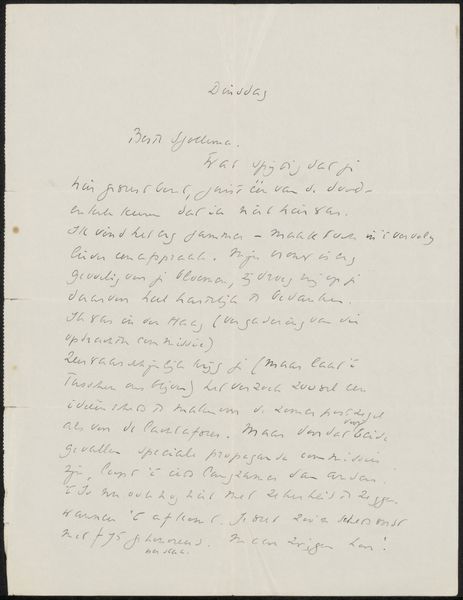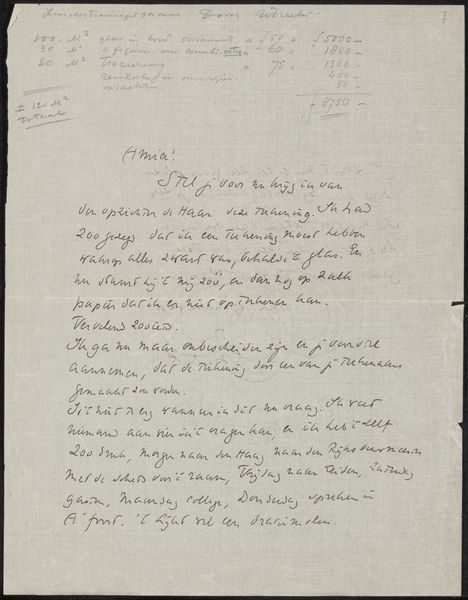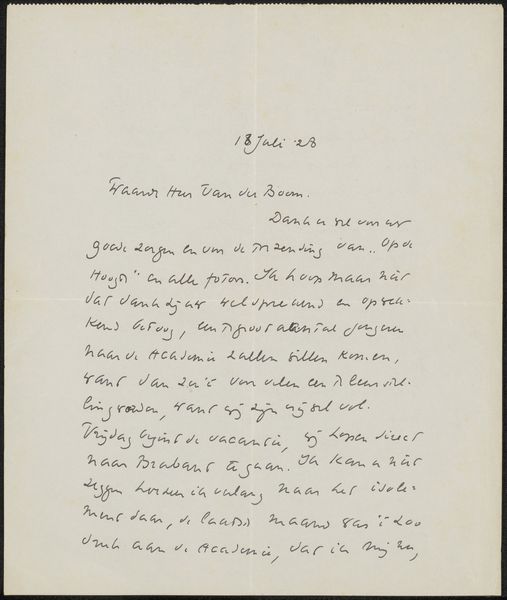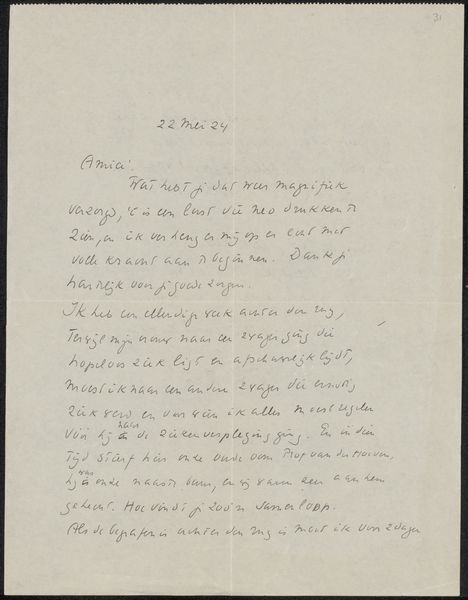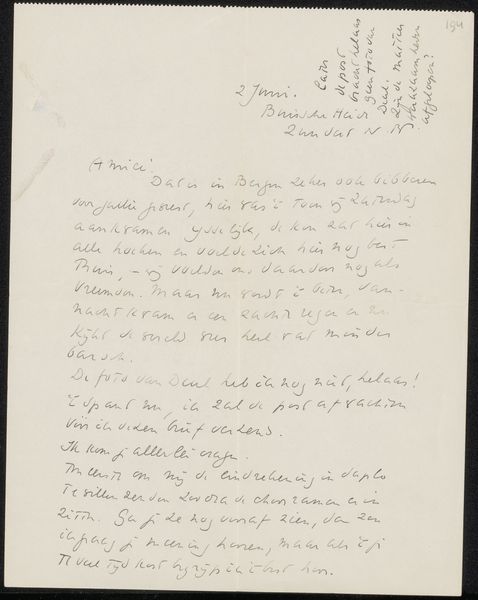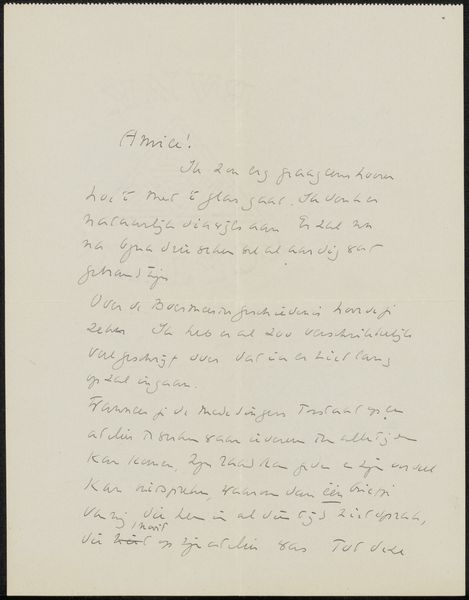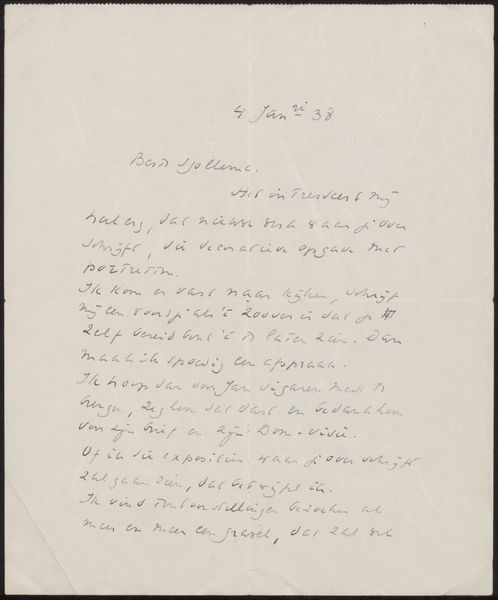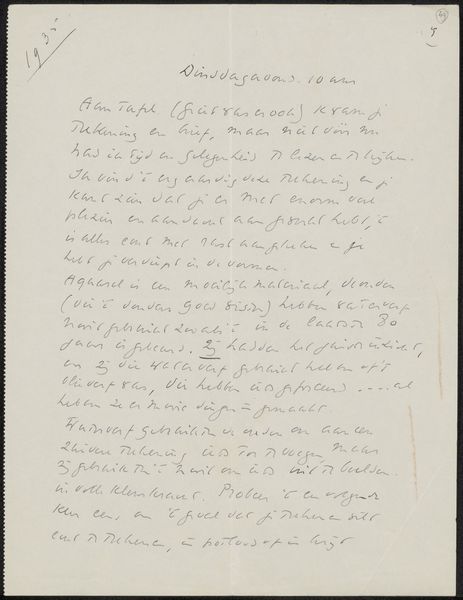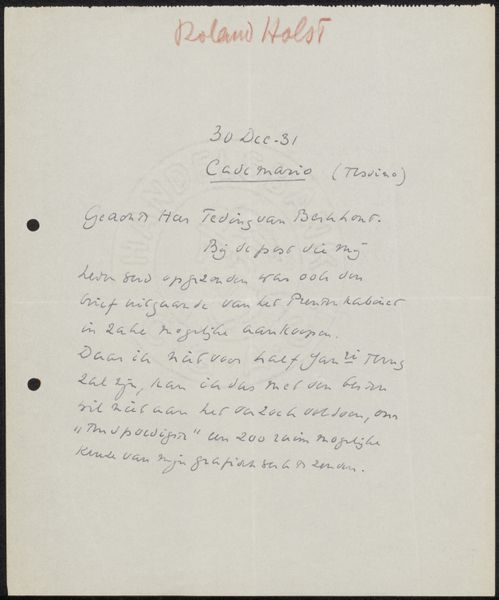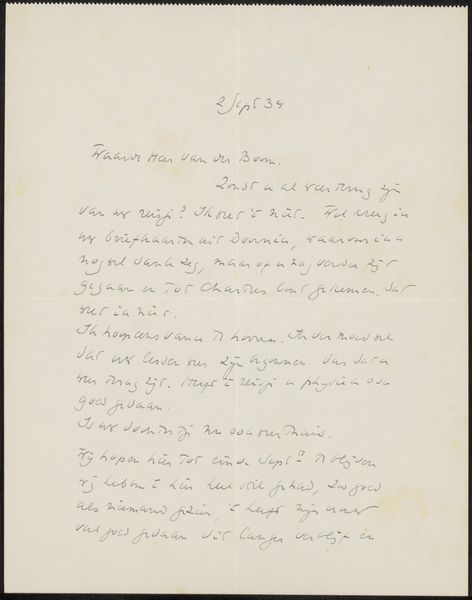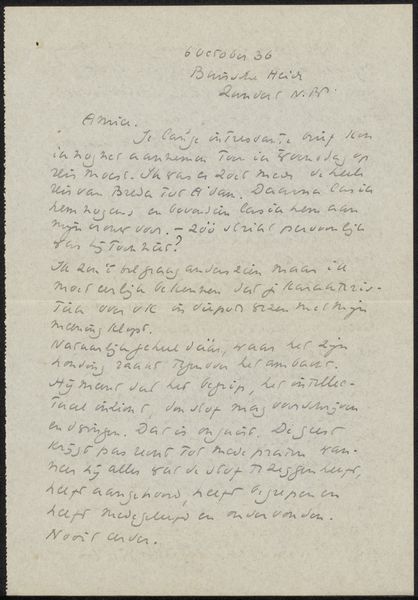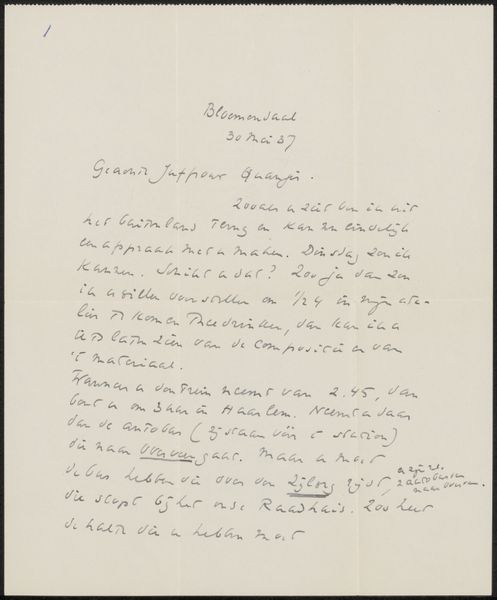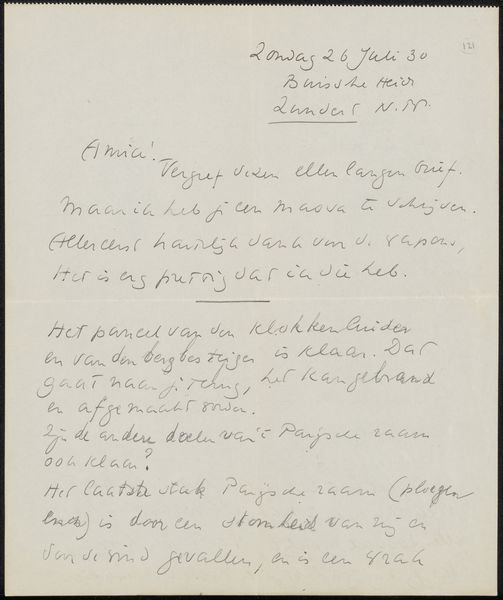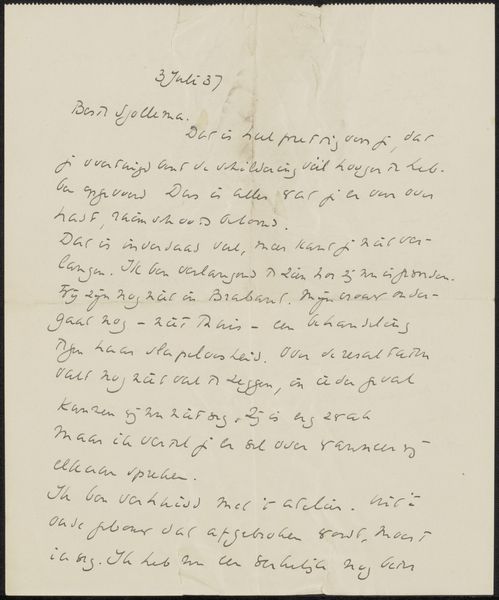
drawing, paper, ink, pen
#
portrait
#
drawing
#
aged paper
#
hand drawn type
#
paper
#
personal sketchbook
#
ink
#
sketchbook drawing
#
pen
Copyright: Rijks Museum: Open Domain
Editor: This is "Brief aan Willem Frederik Gouwe" – "Letter to Willem Frederik Gouwe," created possibly in 1936 by Richard Nicolaüs Roland Holst. It's ink on paper, housed at the Rijksmuseum. What strikes me is the casual, handwritten quality. It feels very personal. What do you see in it? Curator: I note immediately the interplay of surface and line. The aged paper serves not just as a ground but actively participates in the composition. The texture, the subtle discoloration—they’re integral. The ink itself possesses a calligraphic quality, where pressure and speed dictate variations in the line's width. This suggests an immediacy, a directness of thought captured in visual form. Observe the way the lines dance and coalesce, forming a rhythm. Editor: So, you’re focusing on how the materials and the way the ink is applied contribute to the artwork, more than the content of the letter itself? Curator: Precisely. While the textual content holds potential biographical interest, the artwork itself resides in the formal relationships established on the page. Consider how the spatial distribution of the text—the voids surrounding it—plays with figure-ground relationships. The hand-drawn letters present us with graphic characters of differing heights that create rhythm of the handwritten, expressing meaning through form. Do you notice how some areas display great complexity, and others become lighter and breath? Editor: I see what you mean. It's like the blank spaces give the eye a place to rest. Looking at it that way makes it much more visually engaging. It really gives the impression the artist captured that feeling from their head. Curator: Indeed, and that balance between order and disorder generates a dynamism that is captivating. Editor: It’s fascinating to think about how formal elements can speak so loudly, even in something as simple as a letter. Thanks for helping me consider these aspects. Curator: My pleasure. Examining art in this way allows us to unlock meanings we might otherwise overlook, transcending subject matter.
Comments
No comments
Be the first to comment and join the conversation on the ultimate creative platform.
